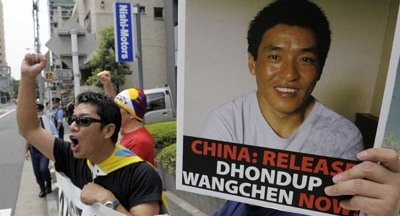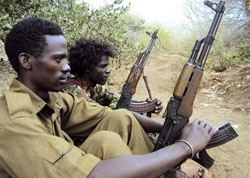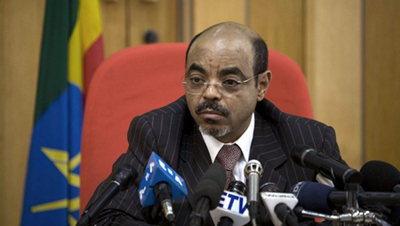Attacks on the Press 2009: Ethiopia
Top Developments• Terrorism law criminalizes coverage of sensitive topics.• Broadcasting Authority serves as government censor. Key Statistic 4: Journalists jailed as of December 1, 2009. Ahead of national elections scheduled for May 2010, the ruling Ethiopian Peoples’ Revolutionary Democratic Front (EPRDF) further curtailed the limited freedom of the country’s small number of independent newspapers. The government enacted…
Ethiopia jails editor whose paper challenged Zenawi
New York, February 1, 2010—An Ethiopian judge sentenced a journalist to prison on Friday in connection with a January 2008 column that criticized Prime Minister Meles Zenawi’s statements about religious affairs in Ethiopia, according to local journalists.
How to help journalists in prison
Today CPJ released its annual census of imprisoned journalists around the world. Citing 136 journalists jailed for their work around the world, the report brings to the foreground one of the toughest issues CPJ and other advocacy groups grapple with: Advocacy working at its best can make a difference over time and, in some cases,…

CPJ’s 2009 prison census: Freelance journalists under fire
New York, December 8, 2009—Freelancers now make up nearly 45 percent of all journalists jailed worldwide, a dramatic recent increase that reflects the evolution of the global news business, the Committee to Protect Journalists said today. In its annual census of imprisoned journalists, CPJ found a total of 136 reporters, editors, and photojournalists behind bars…
Toronto’s Citizen Lab uses forensics to fight online censors
A basement in the gray, Gothic heart of the University of Toronto is home to the CSI of cyberspace. “We are doing free expression forensics,” says Ronald Deibert, director of the Citizen Lab, based at the Munk Centre for International Studies. Deibert and his team of academics and students investigate in real time governments and…
Ethiopia jails two editors on old charges under obsolete law
New York, August 26, 2009–Two Ethiopian journalists were thrown in prison on Monday after a judge convicted them under an obsolete press law in connection with coverage of sensitive topics dating back several years, according to local journalists and news reports.

Ethiopia pushes Kenyan TV to drop report on rebels
Last week, the Ethiopian government tried to force private Kenyan broadcaster Nation Television (NTV) to drop a four-part exclusive report on separatist rebels in southern Ethiopia. NTV aired the first two parts of “Inside Rebel Territory: Rag-Tag Fighters of the Oromo Liberation Front,” which led Ethiopia’s ambassador to Kenya to accuse the Nation Media Group of giving a platform…
Anti-terrorism legislation further restricts Ethiopian press
Dear Prime Minister: We are writing to express our serious concerns about legislation that would further restrict press freedom in Ethiopia and about an ongoing pattern of criminal prosecutions, administrative restrictions, and Internet censorship. We are concerned that these measures, which official rhetoric has publicly justified as policies to safeguard the “constitutional order,” actually criminalize independent political coverage and infringe on press freedom as guaranteed by the Ethiopian Constitution. We call on you to use your influence to reverse this trend.

In Ethiopia, prime minister’s words, actions not in step
This week, in an exclusive interview with the Financial Times, Ethiopian Prime Minister Meles Zenawi suggested that the press in his country freely expresses dissent. In fact, that is hardly the case. The Horn of Africa nation remains one of the world’s worst backsliders of press freedom.